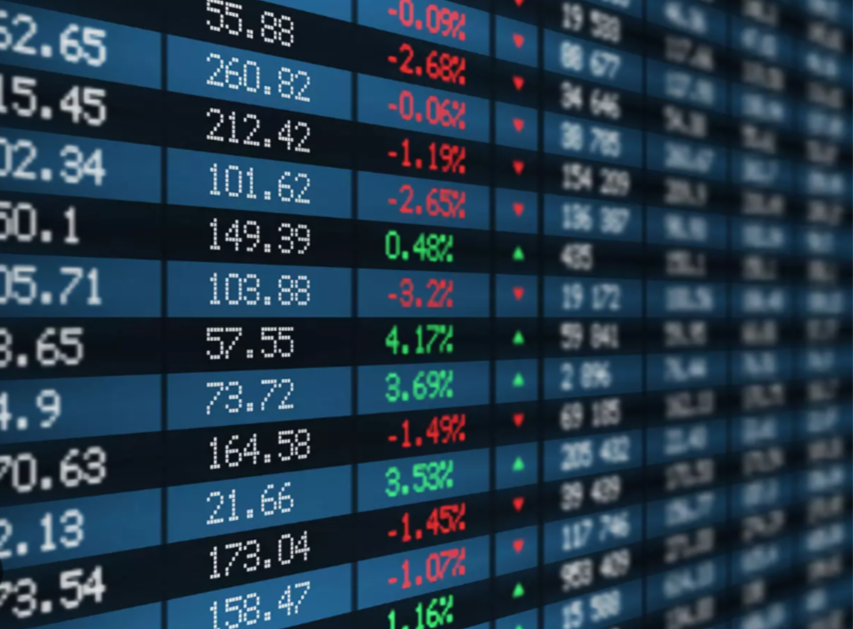
A stock exchange serves as the central hub for trading activities, enabling individuals to buy and sell shares of publicly-traded companies. It provides everyone with the opportunity to invest and become a partial owner in a company, thus allowing them to benefit from its growth.
Historically, stock exchanges were bustling physical locations, such as the crowded floor of the New York Stock Exchange, adorned with order sheets. In the year 2000, the NYSE floor alone churned out approximately 1.5 million pieces of paper daily. However, the era of paper-heavy trading has largely faded away. While I’ve had the opportunity to conduct TV interviews on that very floor numerous times, it has transformed into a notably tranquil environment. There’s now ample space and the once-deafening background noise has subsided into a dull murmur.
How stock exchanges work
While the companies listed on a stock exchange may draw the most attention, it’s the participants that ensure the exchange operates smoothly. Specialists and market makers maintain a supply of shares to provide liquidity during periods of heightened demand or significant company-specific news driving trading volume. This liquidity ensures there’s a buyer for every share sold and shares available for every purchase investors wish to make.
Stock exchanges operate on the foundational economic principle of supply and demand, with stock prices fluctuating based on buying and selling activity. This process unfolds electronically within seconds or fractions of a second.
In the U.S., stock exchanges typically operate from 9:30 a.m. to 4 p.m. EST on business days, with closures on major federal holidays. However, stock prices are never static, even during closures. News such as the appointment of a new CEO, a quarterly earnings report surpassing revenue expectations, or a product recall can influence stock prices. Additionally, trading conducted after-hours or before the market opens, when exchanges are closed, can also impact a stock’s value.
What is the difference between a stock exchange and the stock market?

Although often used interchangeably, the terms “stock exchange” and “stock market” denote distinct concepts. A stock exchange, such as the New York Stock Exchange or Nasdaq, is a regulated marketplace where investors can trade securities according to specific rules and regulations. It serves as a central platform for companies to raise capital by issuing stocks and bonds.
In contrast, the stock market encompasses the extensive network of all tradable stocks, including those listed on various stock exchanges and those traded privately. It reflects the overall trading activity of stocks within a specific region or country, often represented by indices like the S&P 500. Essentially, while the stock market encapsulates the broader scope of stock trading, stock exchanges provide the framework for facilitating these transactions.
Major stock exchanges to know about
Stock exchanges serve as global hubs connecting buyers and sellers worldwide. Here’s an overview of some of the largest exchanges driving trading activity:
- New York Stock Exchange (NYSE): The world’s largest stock exchange, boasting over 2,300 listings and approximately 2.4 billion shares traded daily.
- Nasdaq: Established in 1971 as the first electronic stock exchange, Nasdaq currently hosts more than 3,000 listings.
- Shanghai Stock Exchange: With around 1,800 listings, it stands as the largest exchange in emerging markets.
- Hong Kong Stock Exchange: Hosting over 2,500 listings, it boasts a market capitalization of $32.1 trillion as of April 2024.
- London Stock Exchange: One of the oldest stock exchanges, it currently has over 1,000 listings.
- Tokyo Stock Exchange: Japan’s largest stock exchange, featuring more than 3,900 listings.
Apart from stock trading, there are exchanges dedicated to commodities, such as the New York Mercantile Exchange. Additionally, exchanges like the Chicago Board Options Exchange and Montréal Exchange facilitate trading of financial products known as derivatives.
How to buy stocks on a stock exchange
Purchasing stocks no longer requires a visit to a physical location or direct interaction with sellers. Instead, you can easily open a brokerage account and execute trades from your phone, tablet, or desktop. These transactions take place on the stock exchange. Additionally, you can invest in stocks through Exchange-Traded Funds (ETFs), which hold diversified portfolios of stocks and trade on exchanges.
Before diving into stock investments, conducting thorough research is crucial. Online brokerages simplify the process of buying stocks, often requiring just a few swipes and clicks. Major companies listed on stock exchanges regularly release earnings reports, providing valuable insights into their performance. You can also analyze historical data to gauge past performance, though this might be limited for recent Initial Public Offerings (IPOs). While investing requires time and effort, it’s a fundamental aspect of prudent financial management. If you’re committing your money, dedicating some time for research is essential.
